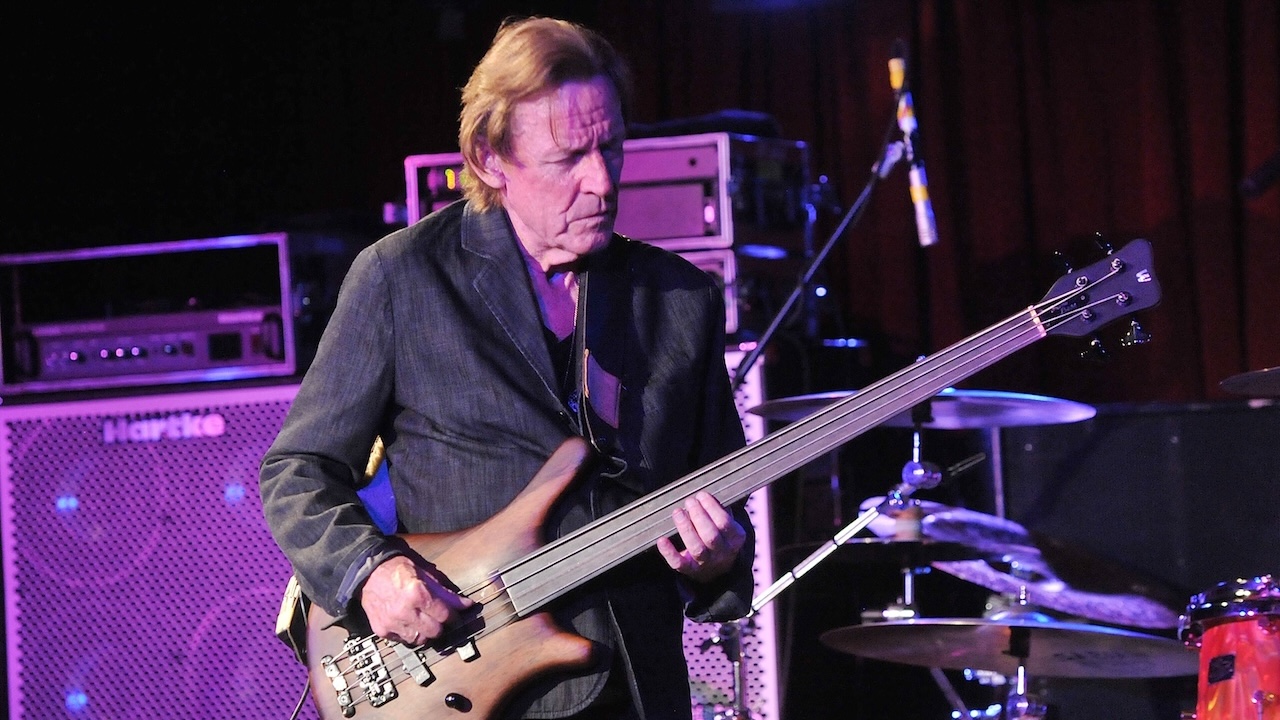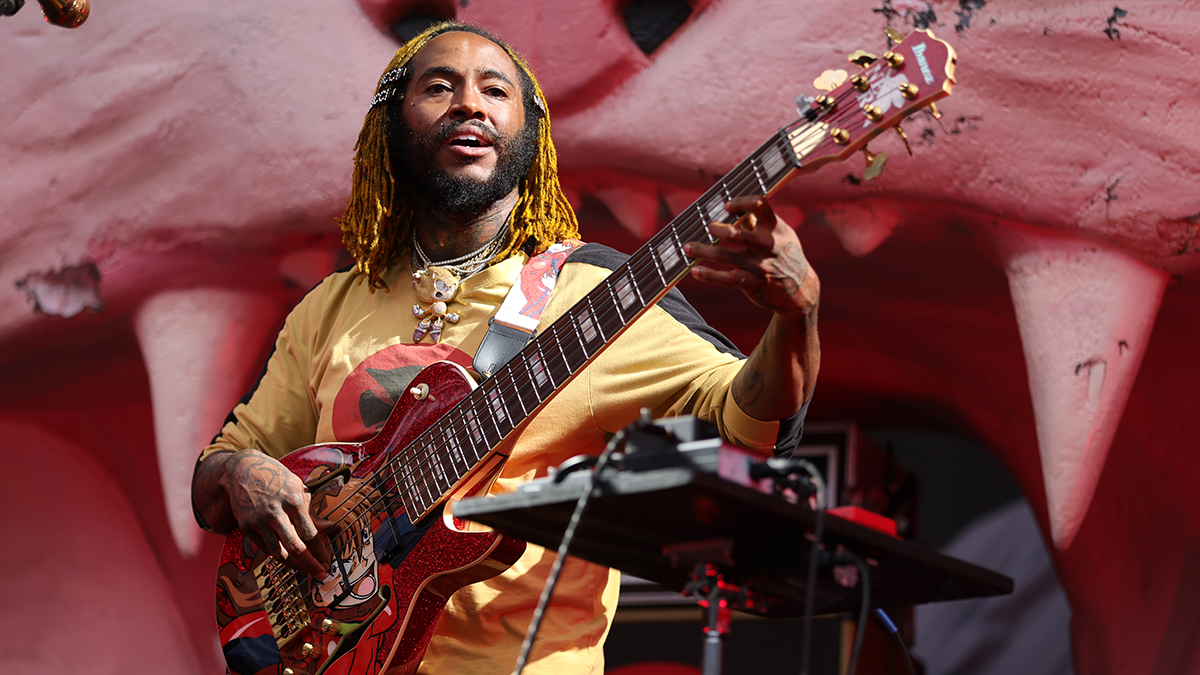“He got really upset and ran off down the street. He turned the corner, and I never saw him again”: Jack Bruce’s final encounter with Jaco Pastorius
According to his brother, Rory Pastorius, Jaco was influenced by the late Cream bassist’s midrange sound and aggressive lead style

All the latest guitar news, interviews, lessons, reviews, deals and more, direct to your inbox!
You are now subscribed
Your newsletter sign-up was successful
Whatever your preferred style of bass playing, you owe a debt to the late Jack Bruce, who is most famous for his bass explorations with Cream but whose importance in our world can’t be summed up in a single genre tag.
Few bassists have managed to successfully develop a style and then skilfully weave it through decades of radically changing music, but Bruce made it look easy, and was lauded as the 11th best bass player of all time in our rundown of the all-time greatest.
Having come to popular music from jazz, Bruce brought with him the sensibility of a fearless improviser. In Cream, he didn't just bend notes and stretch harmonies – he pushed the limits of what was possible on his instrument.
Even if Bruce claimed that Cream was actually a cleverly disguised form of his first musical love, jazz, his own solo releases spanned a wide range of sounds that make him almost impossible to categorise.
“Jack was one of the greatest ever,” Jeff Berlin told Bass Player. “He was an influence on everybody. He was the first virtuoso the electric bass ever had.”
No history of Jack Bruce however would be complete without a mention of his meeting with another bass guitar superhero, Jaco Pastorius – widely hailed as one of the greatest of all time.
“I met Jaco while I was rehearsing in Manhattan around 1984,” Bruce told Bass Player back in 2001. “I had seen him at the Rainbow in London with Weather Report a few years prior, and he was magnificent.”
All the latest guitar news, interviews, lessons, reviews, deals and more, direct to your inbox!
“He sent a message to the studio saying he'd like to meet me at a little club in the Village called 55 Grand. I went down and it was him and Jerry Jemmott, so the three of us started playing.
“Jaco thought he'd put one over on me and started calling Ellington tunes and jazz standards, not knowing about my jazz upright background. Each time I knew the song, he'd go, ‘hummph!’ because he couldn't stump me.
“We talked a bit afterward, and he told me I had influenced him – but I don't know if he was just schmoozing me.”
Bruce continued the story in Bill Milkowski’s book, Jaco: The Extraordinary And Tragic Life of Jaco Pastorius, “He was kind of crazed at the time. He was going up to people in the bar and yelling, ‘Hey, here's the guy who wrote Sunshine of Your Love.’ He seemed to be going in all directions at once.”

“At one point he told me there was going to be an after-hours jam at a recording studio and asked if I would come. I said, ‘Sorry, I can't. I've got something to do, but it's been really nice meeting you.’ He got really upset and ran off down the street. He turned the corner, and I never saw him again.”
In a 1998 Bass Player interview, Jeff Berlin mentioned that according to Jaco's brother Rory, Jaco was influenced by Bruce's midrange sound and aggressive lead style, and that he had bought Bruce's early solo discs and studied them.
Recalling attempts at getting his famous tone, Bruce told Bass Player, “The way I play is very personal, it’s some techniques I’ve developed because I was a cellist and then an acoustic bass player, and all of those things are not really much good to anybody else.
“Frank Zappa wanted the most outrageous Jack Bruce sound when I did his album Apostrophe – not the Cream Bruce sound, which was sort of a fart, but an extremely cranked buzz. People comment on what a great sound it is, but I was ashamed of it!”
Bruce may have been all about change musically, but his gear remained a constant. One of his early basses was the Fender IV, which he used into the early Cream days until he switched to a short-scale Gibson EB3. His main instrument became his signature fretless Warwick Thumb Bass, which he helped design.
Bruce backed off a bit on the neck pickup “for some bite,” kept the active tone knobs “basically flat,” and had the volume knob up only halfway, “because I play pretty hard.”

Nick Wells was the Editor of Bass Guitar magazine from 2009 to 2011, before making strides into the world of Artist Relations with Sheldon Dingwall and Dingwall Guitars. He's also the producer of bass-centric documentaries, Walking the Changes and Beneath the Bassline, as well as Production Manager and Artist Liaison for ScottsBassLessons. In his free time, you'll find him jumping around his bedroom to Kool & The Gang while hammering the life out of his P-Bass.
You must confirm your public display name before commenting
Please logout and then login again, you will then be prompted to enter your display name.
